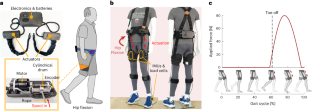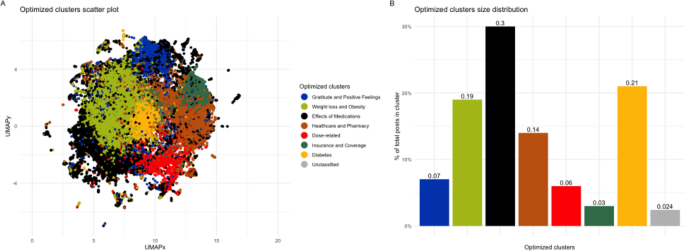2024-01-05 ハーバード大学
◆この研究は、柔軟なロボティクスがパーキンソン病のこの難病症状の治療に有望であり、患者がモビリティだけでなく独立性も取り戻す可能性を示唆しています。従来の治療法が効果的でないなか、この新しいアプローチが注目されています。
<関連情報>
- https://seas.harvard.edu/news/2024/01/soft-robotic-wearable-device-improves-walking-individual-parkinsons-disease
- https://www.nature.com/articles/s41591-023-02731-8
パーキンソン病患者の歩行の凍りつきを回避するソフトなロボットウェア Soft robotic apparel to avert freezing of gait in Parkinson’s disease
Jinsoo Kim,Franchino Porciuncula,Hee Doo Yang,Nicholas Wendel,Teresa Baker,Andrew Chin,Terry D. Ellis & Conor J. Walsh
Nature Medicine Published:05 January 2024
DOI:https://doi.org/10.1038/s41591-023-02731-8

Abstract
Freezing of gait (FoG) is a profoundly disruptive gait disturbance in Parkinson’s disease, causing unintended stops while walking. Therapies for FoG reveal modest and transient effects, resulting in a lack of effective treatments. Here we show proof of concept that FoG can be averted using soft robotic apparel that augments hip flexion. The wearable garment uses cable-driven actuators and sensors, generating assistive moments in concert with biological muscles. In this n-of-1 trial with five repeated measurements spanning 6 months, a 73-year-old male with Parkinson’s disease and substantial FoG demonstrated a robust response to robotic apparel. With assistance, FoG was instantaneously eliminated during indoor walking (0% versus 39 ± 16% time spent freezing when unassisted), accompanied by 49 ± 11 m (+55%) farther walking compared to unassisted walking, faster speeds (+0.18 m s-1) and improved gait quality (-25% in gait variability). FoG-targeting effects were repeatable across multiple days, provoking conditions and environment contexts, demonstrating potential for community use. This study demonstrated that FoG was averted using soft robotic apparel in an individual with Parkinson’s disease, serving as an impetus for technological advancements in response to this serious yet unmet need.


